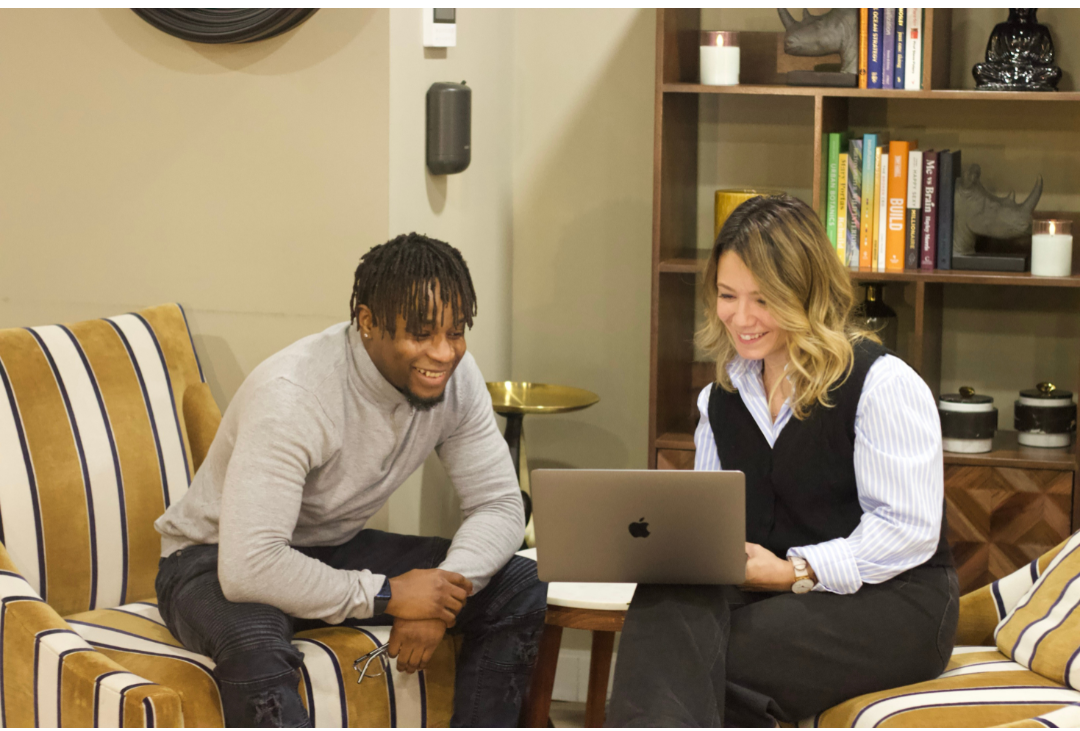30 Jun 2025
The power of everyday allyship for colleagues of colour

Share
I’ll never forget a moment early in my career that fundamentally shifted how I understood allyship. I was a junior team member, invited to a meeting to discuss a new project. The room was filled with senior white male colleagues. I was the only woman present. I was young, eager, and admittedly nervous, but determined to contribute.
When the floor was opened for ideas, I raised my hand several times, only to be overlooked each time by the meeting’s facilitator. My enthusiasm slowly turned into quiet frustration. Eventually, I stopped trying.
Then something unexpected happened. A colleague raised his hand and was immediately acknowledged. But instead of offering his own thoughts, he calmly said, “Actually, I’d like to defer to Cynthia, who has been trying to contribute and has been repeatedly overlooked.”
That moment stayed with me. It wasn’t just the gesture itself, but the awareness, the choice to speak up, and the understanding that silence can be complicity. That simple act changed not only how I was perceived in the room but how I saw the role of an ally.
True allies don’t just empathise, they act. They use their voices, their privilege, and their presence to make space for others. And often, it's those small, intentional acts that make the biggest difference.
We talk a lot about diversity, equity and inclusion in the workplace, but let’s be real – meaningful change doesn’t happen just because there’s a policy in place or a statement on a website. It happens when people, particularly those with influence and privilege, use their voices, their positions, and their power to stand with us. Not just when it’s convenient, but when it’s necessary.
So, what does being an ally mean in practice? It’s not about wearing a badge or declaring “I’m definitely not racist.” It’s about showing up, speaking up, and, most importantly, listening.
Listen and learn
Too often, people of colour are expected to educate others about our experiences. While many of us do so willingly, real allies take the initiative to learn. Read books, watch documentaries, follow voices of colour on social media, and stay informed about the challenges we face. And when a colleague of colour shares an experience, believe them – don’t dismiss it as a misunderstanding or an overreaction.
Speak up in the moment
It’s easy to say you’re against racism in theory, but what about when you see microaggressions happen in a meeting? When a colleague of colour’s idea is ignored but then praised when repeated by someone else? When jokes cross the line? Real allies don’t stay silent. They use their voices to challenge bias and amplify voices of colour.
I remember another moment – this time, I was the one witnessing an unfair situation in a meeting, and a colleague hesitated to speak up. It took me back to that earlier experience when someone stepped in for me, and I knew I couldn’t let this moment pass in silence. No matter how uncomfortable it felt, I had a responsibility to speak up. I now had the voice and the confidence to advocate for others who might not yet feel empowered to do so.
That’s what meaningful allyship looks like. It’s not about ‘saving’ anyone or positioning yourself as the hero. True allyship is not performative, and it certainly isn’t about centring yourself. In fact, well-intentioned actions can easily veer into “white saviourism” when people act without listening to what’s needed. The most effective allies understand that their role is to amplify voices, support structural change, and stand alongside – not in front of – the people they aim to support.
Advocate behind closed doors
Allyship isn’t just about public gestures. Some of the most meaningful support happens behind the scenes, such as mentoring professionals of colour, recommending them for promotions, and making sure they’re included in key conversations. Who gets invited into rooms of influence? Who is given the benefit of the doubt? Who is trusted with leadership? Allies help open doors that systemic biases try to keep closed.
Take accountability and keep going
Being an ally isn’t about being perfect. Mistakes will happen! You might say the wrong thing or miss something you should have spoken up about. What matters is how you respond. Do you get defensive, or do you reflect, apologise, and commit to doing better? The best allies are those who understand that allyship is a continuous process – not a one-time performance.
At Diversifying Group, we see firsthand the power of strong allies and advocates in action. We work with companies who are committed to creating equitable workplaces, and we know that change doesn’t happen in isolation – it happens when people actively choose to be part of the solution.
Moving forward
To my colleagues of colour: keep demanding better. Keep taking up space. Your presence, your voice, and your contributions are valuable.
And to the allies reading this: if you’re wondering whether you’re doing enough, ask yourself this – are you making a difference, or are you just comfortable? Because real allyship is about stepping into discomfort, pushing for real change, and standing with us – not just in moments of celebration, but in moments of challenge, too.
Change is possible, but it requires action. So, who will be the allies that stand up, speak out, and drive real change when it matters most?
Written by Cynthia V Davis, CEO & Founder of Diversifying Group


